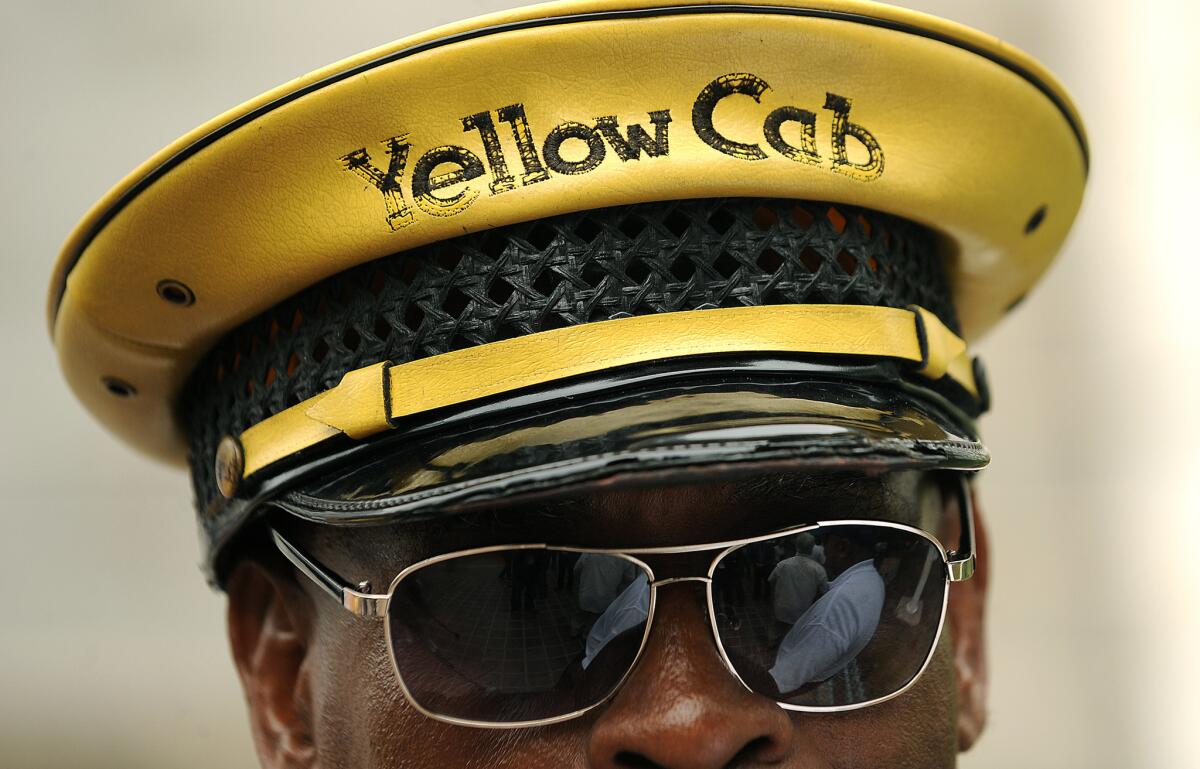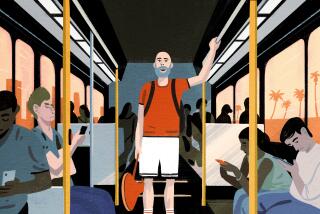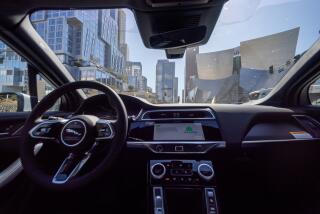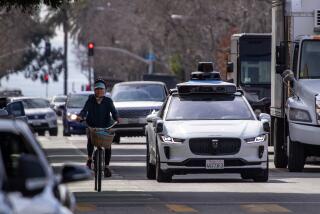Ride-sharing laws will legalize phone app taxi competitors in L.A.

The Los Angeles taxi industry is facing a fleet of new competitors, many of them decorated with bright-pink mustaches.
A California regulatory board Thursday approved the country’s and state’s first rules for ride-share companies, allowing services such as Uber, Lyft and Sidecar to operate as long as they comply with basic insurance and safety standards.
Legalizing the ride-share companies will add competition to California’s transportation world for the first time in decades, said UCLA transportation researcher Juan Matute, and will probably force the L.A. taxi industry to modernize its services.
The decision is expected to influence how other cities and states approach regulation for the ride-share apps, which are rapidly expanding across the country. It is also expected to preempt efforts by California cities to oversee or ban ride-sharing under their authority to license taxi companies.
The ride-share companies allow customers to summon a car and pay for the ride using a smartphone app. Cheaper fares and informal customs, including bright-pink mustaches attached to the grills of Lyft cars, have made the services popular with younger customers.
PHOTOS: Taxi and ride-sharing apps
“Waiting an indeterminate time for a cab and not being able to know when it’s going to arrive — I don’t see that being sustainable any more,” Matute said.
The proliferation of ride-share apps, coupled with Los Angeles County’s expanding light-rail network, may make life without a car easier and more appealing for Angelenos, Matute said. The services do not charge a monthly fee and don’t need to be arranged in advance.
Taxi stands will survive at airports and hotels, Matute said, and may begin relying more heavily on long-distance fares. Cab drivers may allow ride-share companies — which typically charge about 20% less than taxis — to handle shorter trips.
The taxi industry is limited to 2,300 drivers in Los Angeles, but ride-share drivers have no such restriction. If enough people begin using the services, Matute said, drivers could someday facilitate carpools by picking up multiple passengers going the same direction.
William Rouse, the head of L.A.’s Taxicab, Limousine and Paratransit Assn., has said the apps could be biased against low-income and disabled passengers because drivers could choose to avoid them and go on to their next fare. The decision by the Public Utilities Commission will require ride-share companies to report annually how many ride requests were fulfilled, or not fulfilled, separated by ZIP Code.
A Transportation Department spokesman said city employees would enforce the new regulations as part of “normal enforcement activities.”
The ruling caps a months-long battle between L.A.’s taxi industry and the new ride-share apps. In June, the Transportation Department threatened Lyft, Uber and Sidecar drivers with arrest for operating without proper city permits. L.A.’s 2,300 traditional taxis spoke out against the services, saying they operated outside the city’s regulatory process.
When Mayor Eric Garcetti took office July 1, he voiced his support for the ride-share companies, saying he would work with L.A.’s nine taxi companies to adopt similar innovations.
“Mayor Garcetti wants to see ride-sharing become a fully integrated part of L.A.’s transportation system,” spokeswoman Vicki Curry said Thursday. “We want to make sure public safety is protected, and we are assessing next steps. In addition, we will continue working with our taxi companies to improve their competitiveness and service moving forward.”
ALSO:
Lyft and Uber to keep operating in L.A. despite city orders
Lyft surpasses 1 million rides, expands to Washington, D.C.
Lyft expands to San Diego amid cease-and-decist letters in Los Angeles
More to Read
Start your day right
Sign up for Essential California for news, features and recommendations from the L.A. Times and beyond in your inbox six days a week.
You may occasionally receive promotional content from the Los Angeles Times.







